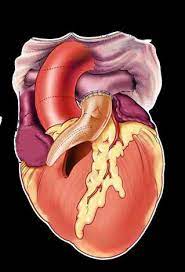Conduit Repair with contegra co
India
-
Our Price USD 9000
-
Hospital Price USD 10000
-
You Save : USD 1000
Booking Amount: USD 900. Pay Remaining 90% at the hospital.
Book NowAdditional Credit
Among the important extras we offer as part of the Additional Credit are the following:
-
Site Tourism For The Patient & Attendant
-
Airport Pick & Drop Service
-
Ambulance service at airport
-
Priority appointments with The Doctor
-
Cancel Easily Anytime with Full Refund
-
Room Upgradation
-
Free Online Doctor Consultation Valued at USD 20
-
Free hotel Stay for 5 to 7 days Accordingly
-
Welcome Kit at Arrival
-
Interpreter
-
Medical Visa Assistance
What is Included?
- Doctor consultation charges
- Lab tests and diagnostic charges
- Room charges inside hospital during the procedure
- Surgeon Fee
- Cost of implant
- Nursing charges
- Hospital surgery suite charges
- Anesthesia charges
- Routine medicines and routine consumables (bandages, dressings etc.)
- Food and Beverages inside hospital stay for patient and one attendant.
What is not Included?
- Extra Radiology Investigations
- Healthcare Professionals Charges of other consultations.
- Other Requested Services such as Laundry etc.
- Additional Pharmaceutical Products and Medicines After Discharge from Hospital.
- Management of Conditions Unrelated to Procedures or Pre-Existing.
- The cost of any additional implants will be in addition to the package cost.
Package Description
Conduit Repair with contegra co:
The Contegra Conduit is an integrated valved conduit that is used to repair or replace the natural right ventricular outflow tract (RVOT) in patients, as well as to replace a failing homograft or composite pulmonary conduit.
The Contegra Conduit, which is derived from a cow jugular vein, has no discontinuity between the conduit's lumen and the trileaflet venous valve it includes. It's made to allow blood to move via a continuous tissue interface and natural valve sinus.
Disease Overview:
Congenital heart diseases
A congenital heart defect (CHD) is an anatomic abnormality of the heart or major vessels that develops during foetal development, regardless of age at presentation. CHDs include ventricular septal defect and aortic coarctation, to name a few.
Congenital heart disease is a condition in which one or more structural flaws in the heart have existed since birth. The term "congenital" refers to a deformity that is present from birth. Congenital heart disease, also known as congenital heart defect, affects how blood flows through your heart from birth. Some congenital cardiac abnormalities may not be life-threatening. Complex malformations, on the other hand, might have life-threatening consequences.
Congenital heart disease newborns can now live well into adulthood because to advances in detection and therapy. Congenital heart disease might have indications and symptoms that aren't visible until you're an adult.
Disease Signs and Symptoms
Congenital heart disease can cause a variety of symptoms, especially in newborns and children, such as
- fast heartbeat and shallow breathing.
- Swelling in the legs, stomach, or eyelids.
- severe exhaustion and weariness
- skin or lips with a blue tint (cyanosis)
- When a baby is nursing, it might cause exhaustion and fast respiration.
Disease Causes:
The majority of congenital heart abnormalities are caused by issues that arise during the development of the baby's heart before birth. Most congenital cardiac abnormalities have an unknown origin. Certain environmental and genetic risk factors, on the other hand, may have a role. They are as follows:
Rubella is a contagious disease that affect (German measles). Rubella can affect your baby's heart development if you get it while pregnant. Before you are pregnant, your doctor can check for immunity to this viral illness and vaccine you if you aren't.
Diabetes. By carefully regulating blood sugar levels before and during pregnancy, a woman who had diabetes before becoming pregnant can lower her risk of congenital heart abnormalities. Diabetes that develops during pregnancy (gestational diabetes) does not raise the chance of a heart abnormality in the newborn.
Medications. Certain drugs can cause birth problems, including congenital heart disorders, if used during pregnancy. Before attempting to conceive, give your doctor a thorough list of your drugs.
Thalidomide (Thalomid), angiotensin-converting enzyme (ACE) inhibitors, statins, the acne treatment isotretinoin (Absorica, Amnesteem, others), several epileptic medications, and some anxiety drugs are all known to raise the risk of congenital cardiac abnormalities.
Consumption of alcoholic beverages when pregnant. Consumption of alcoholic beverages during pregnancy raises the chance of congenital cardiac abnormalities.
Smoking. Quit smoking if you're a smoker. Smoking during pregnancy raises the likelihood of the baby developing a congenital heart condition.
Genetics and family history Congenital cardiac problems can run in families (i.e., they are inherited) and be linked to a genetic condition. Heart abnormalities are common in children who have an additional 21st chromosome (Down syndrome). Heart abnormalities can potentially be caused by a missing piece of genetic material (deletion) on chromosome 22.
Disease Diagnosis:
Your doctor will perform a physical exam and use a stethoscope to listen to your heart to determine congenital heart disease. You'll be quizzed about your symptoms, as well as your medical and family history.
The following tests can be used to detect or rule out congenital cardiac disease:
An EKG is a type of electrocardiogram (ECG). The electrical signals in your heart are recorded during this painless examination. Many cardiac disorders, such as irregular heartbeats and clogged arteries, can be diagnosed using an ECG. ECGs are sometimes taken while you exercise, usually on a bike or treadmill. A stress test is the name for this approach.
X-ray of the chest. Changes in the size and form of your heart, as well as issues with your lungs, can be shown on these scans.
Pulse oximetry is the measurement of oxygen saturation in the blood. The amount of oxygen in your body may be estimated using a tiny sensor linked to your finger.
Echocardiogram. Ultrasound waves produce pictures of the beating heart. This test can be used by your doctor to see how your heart's chambers and valves flow blood through it. Echocardiograms can also be performed while you're doing out on a bike or treadmill.
Transesophageal echocardiography is a kind of echocardiogram that is performed via the esophag A transesophageal echocardiography may be recommended if more detailed pictures of your heart are required. A flexible tube housing the transducer is directed down your neck and into the tube that connects your mouth and stomach in this test (esophagus). The procedure is carried out while you are anaesthetized.
CT scan and MRI of the heart. Images of your heart and chest are created throughout these exams. X-rays are used in cardiac CT scans. Cardiac MRI creates pictures of your heart using a magnetic field and radio waves. You lie on a table that glides within a long tubelike machine for both exams.
Catheterization of the heart. This test may be used by your doctor to examine your heart's blood flow and blood pressure. You'll be given sedatives to help you sleep. The doctor will then carefully place a catheter into an artery or vein in your groyne, neck, or arm and guide it up to your heart. The catheter is guided to the proper place using X-rays. Dye is sometimes injected into the catheter. The dye aids in the visibility of blood vessels on pictures.
Disease Treatment:
Congenital cardiac disease is typically effectively treated in childhood. Some cardiac abnormalities, on the other hand, may not be substantial enough to be repaired during childhood, but they might create issues later in life.
Adults with congenital cardiac disease are treated differently depending on the severity of their condition. You could just need to be watched, or you might need medicine or surgery.
Minor cardiac problems may just necessitate periodic examinations with your doctor to ensure that your condition does not worsen. Inquire with your doctor about how frequently you should be visited.
Medications
Medications that help the heart perform more effectively can be used to treat some moderate congenital heart abnormalities. Medications to prevent blood clots or manage an irregular heartbeat may also be required.
Surgical treatments and other medical procedures
Adults with congenital cardiac disease can undergo a variety of operations and treatments.
Devices for the heart that can be implanted. A pacemaker or an implanted cardioverter-defibrillator (ICD) that helps control your heart rate or corrects life-threatening irregular heartbeats may help alleviate some of the difficulties associated with congenital heart abnormalities.
Treatments that rely on catheters. Catheterization procedures can be used to fix some congenital heart abnormalities. These procedures make it possible to heal the heart without requiring open-heart surgery. Instead, the doctor inserts a tiny tube (catheter) into a leg vein or artery and uses X-ray pictures to guide it to the heart. The doctor threads small instruments through the catheter to correct the problem once it is in place.
Open-heart surgery is a type of surgery in which the patient's heart is Your doctor may prescribe open-heart surgery if catheter methods fail to correct your heart problem.
A heart transplant is a procedure in which a person' A heart transplant may be a possibility if a major cardiac defect cannot be fixed.
Information related to Treatment
Package Details
Days in Hospital
12 Days
Days in Hotel
*
16 Days
Room Type
Private
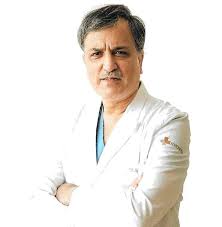
Treating Doctor
Dr. Anil Bhan
Cardiac Surgeon- Pediatric Cardiology, Pediatric Cardiac Surgeon
Medanta-The Medicity, Gurgaon Gurgaon, India
37 Years of Experience
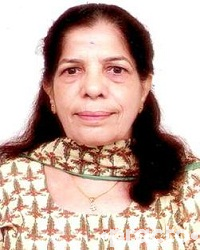
Treating Doctor
Dr. Shanti Talwar
Pediatric surgeon- Pacemaker Implantation, Coronary Angioplasty, Bypass Surgery, Intra - Arterial Thrombolysis Procedures, Mitral/Heart Valve Replacement, Congenital Disorders, Radial Approach Angiography, Cardiac pacing, Appencicitis Treatment, Balloon Mitral Valbuloplasty
Indraprastha Apollo Hospitals, New Delhi New Delhi, India
59 Years of Experience
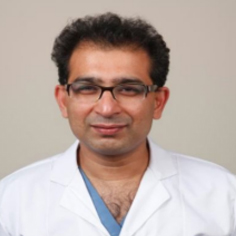
Treating Doctor
Dr. Viresh Mahajan
Paediatric Cardiology- Heart transplant, Angioplasty, GERD Surgery, Kidney Transplant, Pulmonary Arterial Hypertension, Kidney Stone Treatment, Bidirectional Glenn, Fontan procedure & Ebstein anomaly, Arterial switch operation, ASD VSD repair, Transposition of the Great Arteries (TGA) Surgery, Double Inlet Left Ventricle (DILV) Treatment, Double Outlet Right Ventricle (DORV) Surgery, Device implantation for heart failure treatment, Hypertrophic cardiomyopathy treatment, Surgery of ear for alleviation of deafness, Endoscopic Metal Stent Placement, Fitsula treatment, Coarctation, Brain Surgery and Brain Aneursym Surgery, Spasticity, Hip Arthroscopy, Pediatric Lung Transplant
Sarvodaya Hospital Faridabad, India
25 Years of Experience
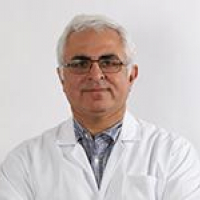
Treating Doctor
Dr. Hemant Madan (Prof)
Cardiologist- Adult & Paediatric- Pediatric Cardiology, Complex coronary interventions, peripheral interventions, Device implantation for rhythm disorders, Valve stenosis, Complex coronary and adult interventions, Paediatric interventions, Advanced pacing and device management, Paediatric and fetal echocardiography
Narayana Super Speciality hospitals Gurgaon, India
18 Years of Experience
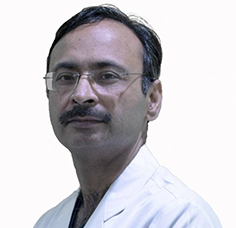
Treating Doctor
Dr. Sushil Azad
Paediatric Cardiology- Tetralogy of Fallot repair, Truncus arteriosus repair, Congenital Heart Disorder CHD, Arteriovenous Malformations, Congenital Limb Defects Surgery, Congestive Heart Failure (CHF) Treatment, Congenital Pseudarthrosis of the Tibia (CPT) Surgery, Cloacal Malformation Surgery, Pulmonary Atresia Surgery, Single Ventricle Defects Surgery, Transposition of the Great Arteries (TGA) Surgery, Connection Repair Arterial Switch, Double Inlet Left Ventricle (DILV) Treatment
Fortis Escorts Heart Institute New Delhi, India
17 Years of Experience
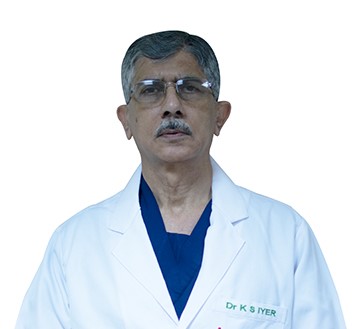
Treating Doctor
Dr. Krishna S. Iyer
Paediatric Cardiac Surgeon- Congenital heart surgery, paediatric Cardiologist, Neonatal heart surgery
Fortis Escorts Heart Institute New Delhi, India
30 Years of Experience
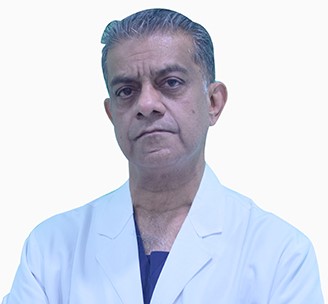
Treating Doctor
Dr. S. Radha Krishnan
Interventional Cardiologist- Pacemaker Implantation, Transcatheter Aortic Valve Implantation (TAVI), Coronary Angiography, Cardiac Ablation, Cardiac Catheterisation, Aortic Anuerysm Surgery/ Endovascular Repair, Cardioversion, Carotid Angioplasty And Stenting, Implantable Cardioverter-Defibrillators (ICDS), Pacemaker Implantation, Peripheral Angioplasty, PCI, TMT, TOF, PDA, DGTA, Pacemaker Implantation, Cardiac Catheterisation, Carotid Angioplasty And Stenting, Pacemaker Implantation, Peripheral Angioplasty, Cardiac Ablation, Cardioversion, Pacemaker Implantation, Cardiac Catheterisation
Fortis Escorts Heart Institute New Delhi, India
40 Years of Experience
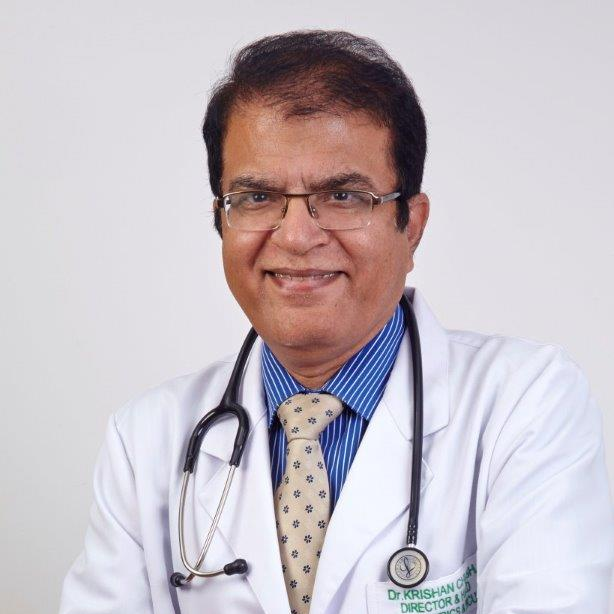
Treating Doctor
Dr. Krishan Chugh
Pediatrician- Pediatric Pulmonology, Allergy Specialist, Bronchoscopy, Bronchoscopy, Bronchoscopy, Pediatric Neonatalogy, Bronchoscopy, Bronchoscopy
Fortis Memorial Research Institute Gurgaon, India
39 Years of Experience

Treating Doctor
Dr. Gaurav Kumar
Paediatric Cardiothoracic Surgeon- Arterial switch operation, Double switch operation, Total anomalous pulmonary venous connection, Arch repair, ASD VSD repair, Tetralogy of Fallot repair, Truncus arteriosus repair, Rastelli operation & Cone repair and cardiac transplant
Narayana Super Speciality hospitals Gurgaon, India
21 Years of Experience
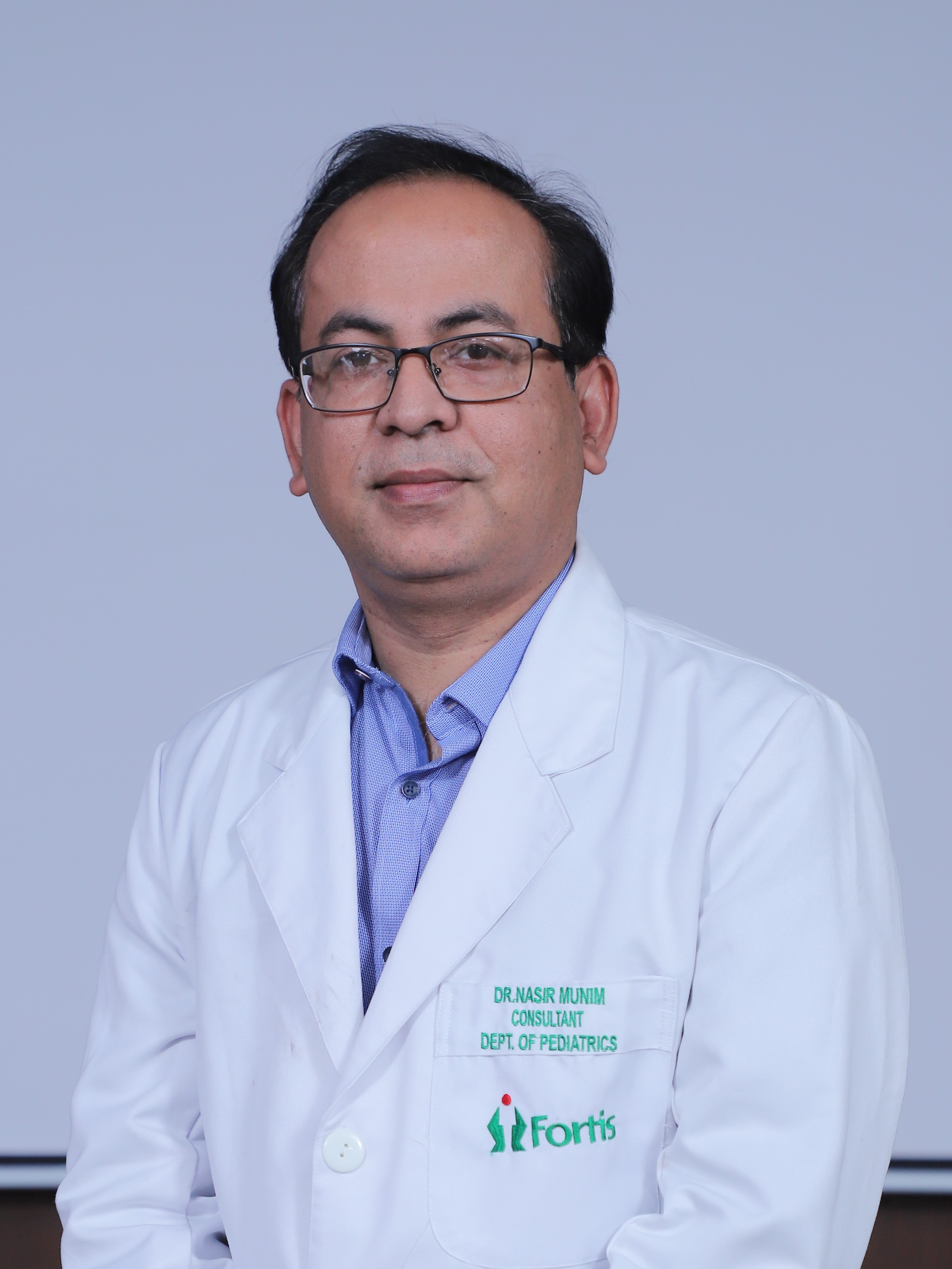
Treating Doctor
Dr. Nasir Munim
Pediatrician- Pediatric Critical Care Medicine, Allergy Testing, Infant & Child nutrition, Allergy Testing, Atrial Septal Defects (ASDS), Thyroid disorder, Vaccination/ Immunization, Chickenpox Treatment, Asthma, Jaundice Treatment, Asthma, Cerebral Palsy, Vaccination/ Immunization, Infant & Child nutrition, Chickenpox Treatment, Chickenpox Treatment, Allergy Testing, Infant & Child nutrition, Bedwetting treatment and management, Polio, Infant & Child nutrition, Child Care, Lactation problems, Management of Restless Child Disorder, Child and Adolescent Problems, Chickenpox Treatment, Cerebral Palsy, Neurofibromatosis, Treatment of Sids, Cough in Children, Management of Growth Retardation, Multiple System Atrophy, Jaundice Treatment, Child and Adolescent Problems, Asthma, Allergy Testing
Fortis Hospital Noida Noida, India
20 Years of Experience

